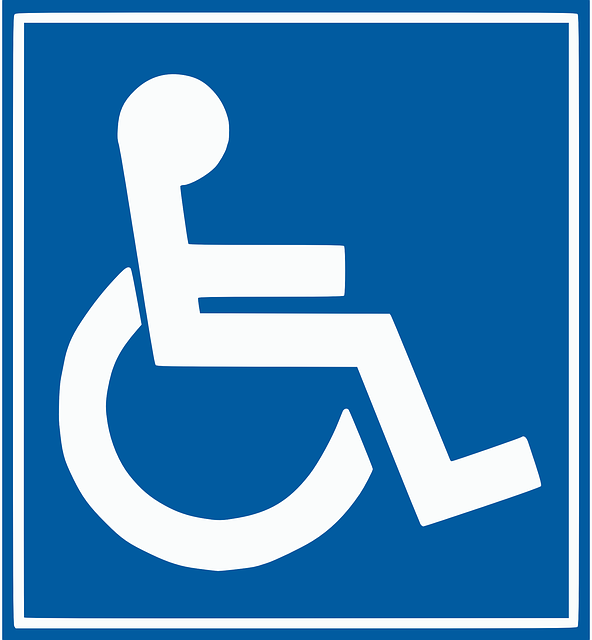First published on Thursday, Jun 04, 2020
Last updated on Thursday, Sep 22, 2022
As an employer, you have a responsibility to provide the same opportunities for able and disabled staff, as well as treating them the same. Failure to do so is discrimination and against the law.
Failure to stop direct or indirect disability discrimination can lead to an employee making a claim against you and potential legal trouble.
In this guide, we'll discuss what disability discrimination is, its different forms, and your responsibilities as an employer.
What is a Disability?
A disability is a condition which brings an impairment, limitations and participation activities. Such impairment can cause difficulties in major life activity - such as working.
A person with a disability will face daily barriers in their lives. As an employer, you have a responsibility to ensure disabled employees have equal access and equal opportunities.
It's crucial you understand the rights that all disabled people have in Canada, no matter their age or gender.
Rights of Disabled People In Canada
People with disabilities are protected by the two main federal laws - the Canadian Charter of Rights and Freedoms, and the Canadian Human Rights Act.
The Charter makes up part of the Canadian Constitution, whereas the Human Rights Act works to actively protect against discrimination in all forms.
Canadian Human Rights Act
The act works to provide equal rights, prohibits discrimination, and protects employees if they're employed by the Federal Government or private companies regulated by Federal Government such as banks and broadcasters.
However, there are provincial legislation in place to protect people with disabilities throughout Canada. Such as:
- Ontario Human Rights Code.
- British Columbia Human Rights Code.
- The Human Rights Code - Manitoba.
- Alberta Human Rights Act.
- Saskatchewan Human Rights Code.
The above all helps and protects people from discrimination, but it's important you understand disability discrimination is before tackling it in your workplace.
What is Disability Discrimination?
Disability discrimination when employees feel they'll receive negative treatment from their employer or co-worker because of their disability or perceived disability.
It's often linked to ableism, with someone's prejudged attitudes and stigma's surrounding disabilities.
The word disability should be interpreted broadly by employers to include past, present and perceived conditions.
As an employer, it's crucial you understand the different forms of discrimination based on disability.
Different Types of Physical or Mental Disability Discrimination
Disability-related discrimination in employment can take many different forms and should be avoided at all times.
Failure to tackle discriminatory behaviour can lead to serious negative effects for your business.
Exclusion From Work Opportunities
Employers can sometimes specifically exclude disabled people from work opportunities, development, and job assignments. This is seen as direct disability discrimination and should be avoided at all costs.
For example, if an employee's job role has been modified after returning to work following disability-related leave.
Indirect Discrimination
Indirect discriminatory behaviour is when a company’s policy affects a group of people, leading to discrimination.
For example, all job applicants must be able to drive. This puts some persons with disabilities at a disadvantage as they may not be able to drive due to their condition.
Discrimination by Association
Disability discrimination by association is when someone is treated differently due to a family or friend having a disability.
For example, an employer refuses to promote an employee whose wife is disabled - due to preconceptions they'll need more time off work to look after their family member.
Under the Family and Medical Leave Act - the employee may be eligible for leave.
Disability Harassment or Creating a Poisoned Environment
Harassment is when someone makes unwanted discriminatory remarks to someone surrounding their disability, knowing it'll offend them.
Allowing this behaviour in your workplace creates a poisoned environment and will make your employees with disabilities feel unwelcome.
Harassment takes many different forms and can include the following:
- Name-calling or nicknames based on disability.
- Ongoing comments to colleagues with disabilities or disability-related characteristics.
- Bullying an employee with a disability.
Senior staff can also harass disabled employees. For example, an employer tells his staff that learning disabilities don't exist - people are just lazy. This is highly offensive and discriminates against people with disabilities.
Any incidents of harassment should be made instantly aware to the employer.
Systemic Discrimination
This form is made up of a set of attitudes, policies or practices that have been created in a workplace over time.
These behaviours are typically hard to shift and can lead to serious disadvantages for an employee with disabilities.

How are Employees With Mental or Physical Disabilities Protected in the Workplace?
People with disabilities should always be protected throughout their employment.
As an employer, you must do all you can to remove the attitude, physical, systemic and communication barriers that disabled people face in employment.
Under the different provincial human rights codes in Canada, all employers have a duty to their employees to accommodate them within their business.
What's the Duty to Accommodate Mental or Physical Disabilities?
Under Canadian law, the duty to accommodate is what all employers must do to ensure people with disabilities receive equal opportunities, equal access and enjoy the same benefits as other colleagues.
As an employer, you must do your best to accommodate any job applicant that has a disability before starting employment. This process is also known as reasonable accommodation, and you have a duty to find a solution for any requested accommodation made by an employee.
What is Reasonable Accommodation?
Reasonable accommodations are requests by a disabled employee to make employment more comfortable for them and ensure full participation.
Employers identify the needs of new employees on a case by case basis, making different adjustments for different staff.
Employees must provide enough information in order to find the best accommodation for them. This will make the process easier and mean there's a range of different ideas and suggestions - if an employer offers more than one accommodation, they'll choose which one to provide.
Examples of Reasonable Accommodations Which Help Avoid Discrimination
To make sure you're making employment comfortable for people with disabilities, it's important you familiarize yourself with common accommodations:
- Allowing a flexible working schedule.
- Making building changes to allow better access, such as ramps or lifts.
- Providing different ways of communicating with hearing impaired employees.
- Provide additional training and education.
- Making changes to job duties for persons with disabilities.
- Modify workstations, such as providing chairs with better back support.
Can an Employer Refuse Reasonable Accommodation Requests?
As an employer, you cannot outright refuse a request for reasonable accommodation.
For persons with disabilities, these accommodations are vitally important for job- and refusing these requests is discrimination.
The following steps should be taken by the employer:
- All accommodation requests made by a person should be accepted in good faith.
- Obtain any expert opinions or advice if needed.
- Communicate with your employees about all the options available for their accommodation - ensure you keep confidentiality at all times.
- Keep a record of the accommodation request and any action taken. This'll help avoid any conflict in the future.
- Make sure you respond to any accommodation requests as quickly as possible.
Employers have a duty to accept requests and find solutions up until the point of undue hardship.
What's Undue Hardship?
Undue hardship is when a solution can't be found for a needed accommodation request for the following reasons:
- Too high a cost and would need high amounts of financial resources.
- Creates health & risks.
Employers often claim undue hardship as the reason why certain policies or practices need to stay in place - it also protects claims made against them. However such steps should be taken to avoid undue hardship from being claimed.
Can an Employer Request Medical Information?
Employers have no legal right to request further information on a person with an obvious disability or medical condition.
An employer generally only requests information if a medical exam is required or if the employer believes they can't undertake it without significant difficulty. The result of any health and medical exams should be kept in separate medical files under complete confidentiality.
These conversations should only take place after a job offer has been made, not during the interview process.
How to Avoid Disability Discrimination in Your Workplace
As an employer, you have a duty to create a fully inclusive workplace for everyone. The following are easy steps you can take to ensure you protect against discrimination based on disability.
Educate Yourself on Disability
Increase your own knowledge on disability and how to accommodate future employees - as well as providing education for current staff. This will allow you to take a more proactive approach and a positive attitude towards people with disabilities.
Create Clear Policies
Create anti-discrimination, anti-harassment and clear disciplinary policies. They should be signed off by both parties before employment starts and included in the employee handbook.
This will increase any person with disabilities' confidence in you and your company that'll you'll discipline any person who shows discriminatory behaviour. Include persons with disabilities on decision making committees
This should be a must, especially if you're looking to make building changes to grant better access (especially after a number of accommodation requests). Employees’ confidence in you will be increased and you'll have an overall happier workforce.
Prevent Disability Discrimination with BrightHR
As an employer, you have a duty of care to make sure your employees aren't treated differently due to having a disability. It's your responsibility to create an inclusive workforce, providing equal rights, access and benefits to all persons with disabilities.
As an employer, you have a duty of care to protect your employees from bullying and harassment based on disability. It’s against the law to treat someone differently due to a disability.
It's vital you take every accommodation request seriously and work with the person to find the best possible solution. Failure to do can lead to a discriminatory claim being made against you.
Our BrightAdvice service allows you to receive quality advice on any employment issues you may have.
Contact us on 18882204924 or book a demo today.
Have a question?
Ask away, we’ve got lightning fast answers for Canadian business owners and employers powered by qualified experts.









